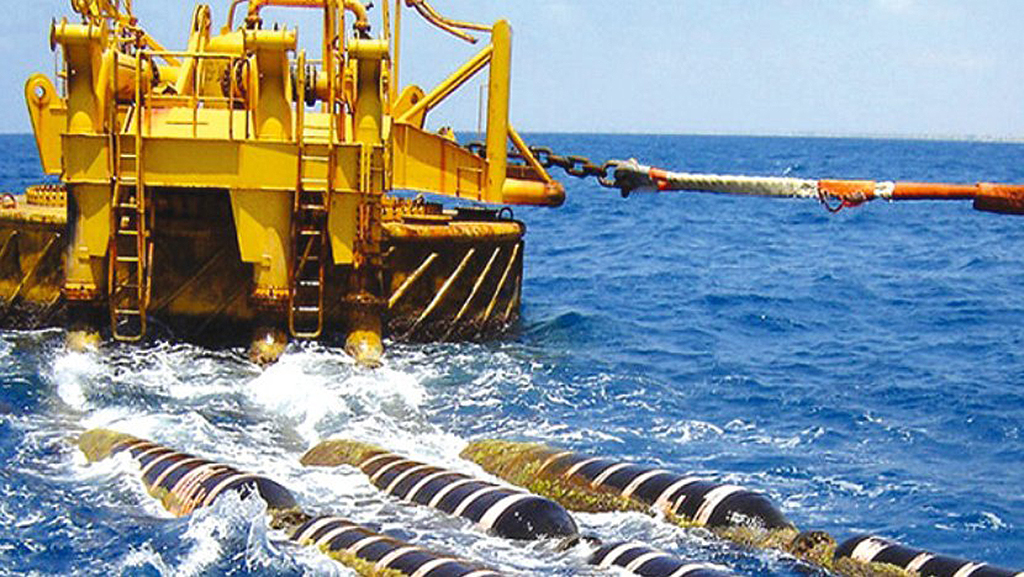The Cypriot government is “ready” to begin consultations with both Greece’s independent transmission system operator Admie and the country’s energy ministry to find an agreement on “all matters” related to the Great Sea Interconnector, Energy Minister George Papanastasiou said on Wednesday.
On this matter, he was asked about reported “American concerns” over the feasibility of the interconnector, but was swift to point out that they are not “American concerns”, but rather concerns expressed by the American consulting firm the government has appointed to aid to evaluate the cost-benefit analysis submitted to the government by Admie.
“The company just happens to be American. We, the Republic of Cyprus, have rightly appointed a consulting firm, a worthy firm, which has provided some observations, some suggestions, and some amendments to some of the agreements proposed by Admie and which mainly concern future investors and shareholders,” he said.
The company the government chose was Charles River Associates, and their report said it is “unclear whether the development and utilisation of the Great Sea Interconnector will ultimately decrease the cost of electric power for Cypriot consumers”.
“We find that it is unclear whether the Great Sea Interconnector represents the optimal solution for Cyprus to meet renewable energy targets and lower costs to the Cypriot consumers,” it added.
Additionally, it said the cost-benefit analysis’ evaluation of the impact of the project on the reliability of Cyprus’ electricity system is “lacking”, and that there was “no assessment of how the Cyprus to Israel connection (if built) will affect the commercial outcomes of the Greece to Cyprus connection”.
However, as Papanastasiou said on Thursday, the firm is not linked to the American government, and Greek Energy Minister Theodoros Skylakakis had said at a joint meeting at the end of last month that there is “clear support from the United States” for the project.
At the same meeting, Papanastasiou also described the project as one which also has a “geopolitical” nature, given that it has been partially subsidised by the European Commission.
To this end, Skylakakis said the project now has a “regular cash flow” and that cables have begun to be laid off the coast of Crete. He added his hope that with the Cypriot government set to become a stakeholder in the project, it will “be able to attract the interest of important international investors”.
Skylakakis said the project will be “more beneficial for the Cypriot consumer, as for Greece, it will contribute more to the stability of the system and the possibility of dispersing renewable energy potential into the wider region”.
“The project is important politically, geopolitically, and in terms of energy for Cyprus and the wider region,” he added.
Cyprus has long been weighing up its options on the matter of whether or not it will buy in to the project’s holding company, with Greece’s independent power transmission operator Admie, a 51 per cent stakeholder, having requested the Cypriot government pay €100 million to buy in.
While the cost-benefit analysis has been evaluated by Charles River Associates, George Panteli, the finance ministry’s then permanent secretary, had said in September Cyprus’ authorities have not yet seen the project’s financing plan.
In addition, he said the government was not given access to the interconnector’s financing plan and was not privy to the details of Admie’s agreements with technology companies Nexans and Siemens for the manufacture of the interconnector’s cable and voltage convertors.
The wait for a decision had irked Skylakakis earlier in the year. He had said in April that Cyprus may miss deadlines should it delay a decision on the matter, and pointed to the European Commission’s financial support for the plan under its Connecting Europe Facility, and an extra €100m pledged through the European Union’s Recovery and Resilience Facility.






Click here to change your cookie preferences